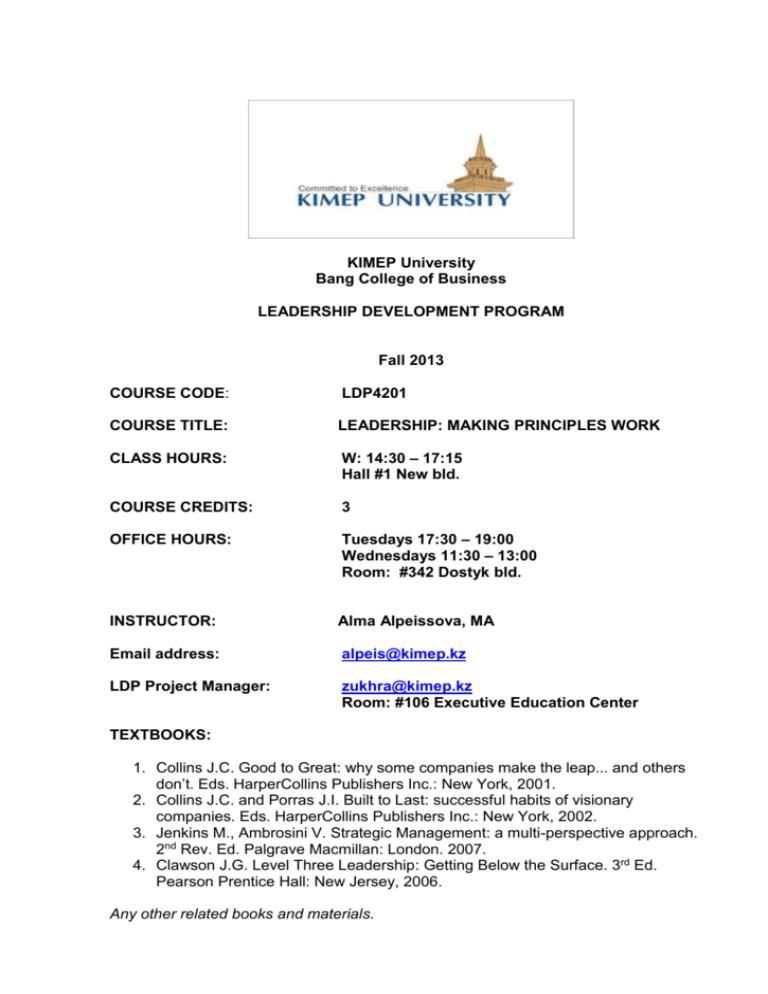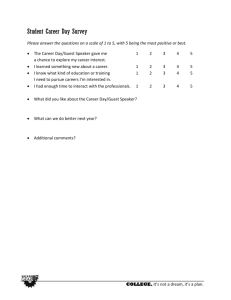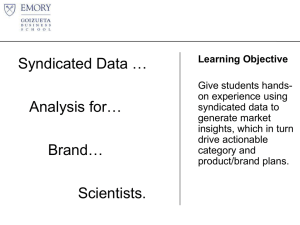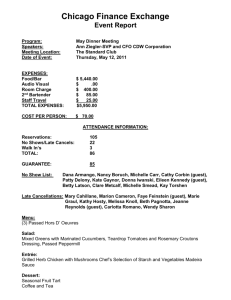
KIMEP University
Bang College of Business
LEADERSHIP DEVELOPMENT PROGRAM
Fall 2013
COURSE CODE:
LDP4201
COURSE TITLE:
LEADERSHIP: MAKING PRINCIPLES WORK
CLASS HOURS:
W: 14:30 – 17:15
Hall #1 New bld.
COURSE CREDITS:
3
OFFICE HOURS:
Tuesdays 17:30 – 19:00
Wednesdays 11:30 – 13:00
Room: #342 Dostyk bld.
INSTRUCTOR:
Alma Alpeissova, MA
Email address:
alpeis@kimep.kz
LDP Project Manager:
zukhra@kimep.kz
Room: #106 Executive Education Center
TEXTBOOKS:
1. Collins J.C. Good to Great: why some companies make the leap... and others
don’t. Eds. HarperCollins Publishers Inc.: New York, 2001.
2. Collins J.C. and Porras J.I. Built to Last: successful habits of visionary
companies. Eds. HarperCollins Publishers Inc.: New York, 2002.
3. Jenkins M., Ambrosini V. Strategic Management: a multi-perspective approach.
2nd Rev. Ed. Palgrave Macmillan: London. 2007.
4. Clawson J.G. Level Three Leadership: Getting Below the Surface. 3rd Ed.
Pearson Prentice Hall: New Jersey, 2006.
Any other related books and materials.
COURSE DESCRIPTION:
The main objective of this course is to equip students with tools necessary for analyzing
leadership activities within the organizations. The course will also introduce
contemporary leadership concepts and practices through delivering guest lectures and
simulating leadership exercises. Students will learn major approaches to leading people
that will serve as the basis for future organizational success.
COURSE CONTENTS:
The course framework is organized around guest lectures by business practitioners and
introduces techniques for developing leaderhsip skills through the use of
comprehensive case studies and stimulating leaderhsip exercises.
The following modules represent the indiative class topics that you will be learning
throughout this course. The modules’ sequence is subject to change due to the busy
schedule of the speakers and will be announced before the actual presentation.
Module 1. Building the vision
Module 2. Developing Emotional Intelligence
Module 3. Developing the Founder’s Mind
Module 4. Getting the Right Results
LEARNING OBJECTIVES:
By the end of the course you should be able to:
understand how to develop competences for building the vision
recognize your own emotions and feelings and those of others
build relationships and understand how to influence others
diagnose the organization’s leadership capacity and address the present
challenges
TEACHING METHODOLOGY:
Guest Lectures
Class discussions
Case studies
Role plays
Management games
COURSE ASSESSMENTS
Your course grade will be determined as follows:
Case presentations
20%
Mid-term exam (09/10/13)
20%
Attendance and participation
20%
Final assessment
Final Essay (11/12/13)
Final Exam
40%
10%
30%
Total
100%
Short Exam:
Essay type questions.
Case presentations:
The students shall form the groups of 5-6 students and make the presentation of the
assigned case analysis in the class. The case analysis questions will be assigned.
Final Exam:
Comprehensive, case based exam.
Final essay:
By the end of the course you must submit an essay covering the answer to the
question:
What do all leaders do for the organization’s success?
Attendance:
For each article, book chapter and case assigned you will have to submit a reflection
paper (quick written summary) before the class starts. You will generate your grade for
attendance based on the number and quality of the reflection papers submitted.
Participation:
To succeed in this class follow the recommendations below:
For each class you will be assigned reading the articles, cases and/or textbook
chapters. You should come to class with an understanding of the issues of
contemporary leadership from the readings assigned and be prepared to:
Ask relevant and appropriate questions to a guest speaker
Your questions may include but not be limited to the following:
1. What is the purpose of your life?
2. What is your vision for your future?
3. What values do you stand for?
4. What are your long term organizational goals?
5. What is your strategy for moving toward the vision you see for your
organization?
6. How do you develop leaders in others?
7. What do you do for your community and country?
8. What challenges do you face in managing change in your organization?
How do you overcome them?
9. How would you measure a leadership potential of someone?
10. How do you envision a transition from a manager to a leader? What do
you do about it in your organization?
11. How do you generate commitment of your employees?
12. What do you have to do as a leader to excel in organizational
performance?
13. What are the present strategic challenges of your industry? How does
your organization overcome them?
Present a viewpoint
Defend your opinion through questioning from classmates
Be open to the alternatives and experiences of prominent business leaders and
your colleagues
The focus of each case discussion is on analysis and decision-making:
What are the facts?
What do they mean?
What alternatives are available?
What specifically should be done?
How and when should it be done?
Having discussed the case with your team make sure that you can:
Identify problems
Consider alternatives
Analyze data
Make decisions
Outline a suggested course of action
To get the most out of your experience, you need to come to class prepared to ask the
right questions, to think, to share your ideas, to respond to your colleagues and to
defend you viewpoint.
GRADING SCALE:
Grading for the course will be determined based on the KIMEP grading scale.
COURSE POLICIES:
Attendance and examination policies and procedures will be applied to the course in
accordance with stated KIMEP rules of conduct and discipline.
Academic Honesty: Dishonesty, including but not limited to cheating on tests and
plagiarism, is taken seriously. The minimum penalty is an “F” in this course and refferal
to Disciplinary Committee.
Attendance:
Class attendance consists of a significant part of your grade. Attend class and prepare
for the class by reading the material before the scheduled class period. Class
discussions and questions make the subject more interesting and relevant, for both
students and the instructor. Missing a lecture may impede your ability to understand
fully the concepts and principles covered.
Library Utilization: Students may study in KIMEP’s Library and take books home
under normal library rules.
Indicative Course Content
Date
Week 1
04/09/13
Events
Session 1
Guest Speaker
Session 2
Course Introduction
Week 2
11/09/13
Session 1
Class Discussion
Topic: Building the Vision
Material:
Building Your Company’s Vision by James C. Collins and Jerry I. Porras,
HBR, 2007.
Session 2
Guest Speaker
Week 3
18/09/13
Session 1
Class Discussion
Topic: Visionary Leadership
Material:
Trouble in Paradise by Katherine Xin and Vladimir Pucik. HBR, 2003.
Session 2
Guest Speaker
Week 4
25/09/13
Session 1
Class Discussion
Topic: Developing Emotional Intelligence: Personal Values
Material:
Hay Group. Self-Awareness Exercises
Hay Group. Emotional and Social Competency Assessment
Questionnaire
Leading by Feel. HBR, 2004.
Session 2
Guest Speaker
Week 5
02/10/13
Session 1
Class Discussion
Topic: Developing Emotional Intelligence: Influence Strategies
Material:
Hay Group. Influence Strategies Exercise
Leadership that Gets Results by Daniel Goleman. HBR, 2004.
Session 2
Guest Speaker
Week 6
09/10/13
Session 1
Mid-term exam
Session 2
Guest Speaker
Week 7
16/10/13
Session 1
Class Discussion
Topic: The Art of Persuasion
Material:
The Tactics and Ethics of Persuation by Philip G. Zimbardo. Attitudes,
Conflics and Social Change, 1972.
The Geography of Trust by Saj-nicole A. Joni. HBR, 2004.
Session 2
Guest Speaker
Week 8
23/10/13
Session 1
Class Discussion
Topic: The Art of Persuasion
Material:
Harnessing the Science of Persuasion by Robert B. Cialdini. HBR, 2001.
Session 2
Guest Speaker
Week 9
30/10/13
Session 1
Class Discussion
Topic: Developing the Founder’s Mind
Material:
The Founder’s Dilemma by Noam Wasserman. HBR, 2008.
Case: Meg Whitman at eBay Inc. by Linda A. Hill and Maria T. Farkas.
HBS, 2005.
Session 2
Guest Speaker
Week 10
06/11/13
Session 1
Case Presentations
Material:
Meg Whitman at eBay Inc. by Linda A. Hill and Maria T. Farkas. HBS,
2005.
Session 2
Guest Speaker
Week 11
13/11/13
Session 1
Case Presentations
Material:
Meg Whitman at eBay Inc. by Linda A. Hill and Maria T. Farkas. HBS,
2005.
Session 2
Guest Speaker
Week 12
20/11/13
Session 1
Class Discussion
Topic: Getting the Right Results
Material:
Ideas are Born in Fields of Play by Charalampos Mainemelis and Sarah
Harvey. HBR, 2010.
Case: Harrah’s Entertainment, Inc.: Rewarding Our People by Thomas
Delong and Vineeta Vijayaraghavan. HBS, 2002.
Session 2
Guest Speaker
Week 13
27/11/13
Session 1
Case Presentation
Material:
Case: Harrah’s Entertainment, Inc.: Rewarding Our People by Thomas
Delong and Vineeta Vijayaraghavan. HBS, 2002.
Session 2
Guest Speaker
Week 14
04/12/13
Session 1
Case Presentation
Material:
Case: Harrah’s Entertainment, Inc.: Rewarding Our People by Thomas
Delong and Vineeta Vijayaraghavan. HBS, 2002.
Session 2
Guest Speaker
Week 15
11/12/13
Session 1
Class Discussion
Topic: Getting the Right Results
Material:
Case: Sheikh Mohammed and the Making of “Dubai, Inc.” by Anthony J.
Mayo et al. HBS, 2010.
Session 2
Guest Speaker





